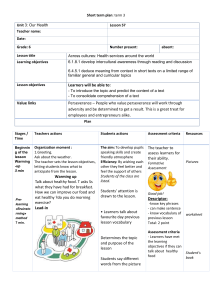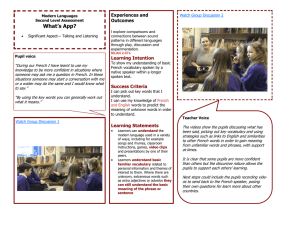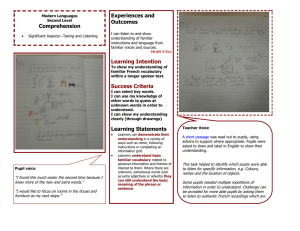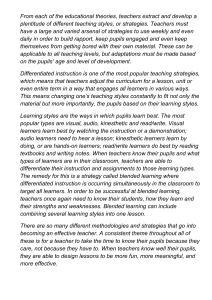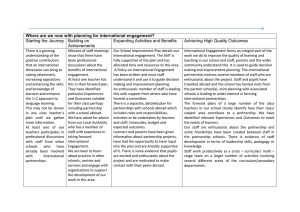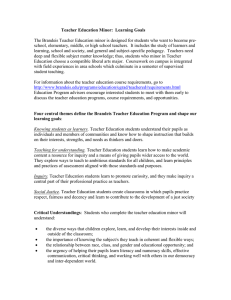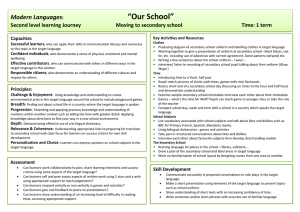MAXIMISING POTENTIAL: Points for reflection: Unit 4 AN OUTLINE FRAMEWORK
advertisement
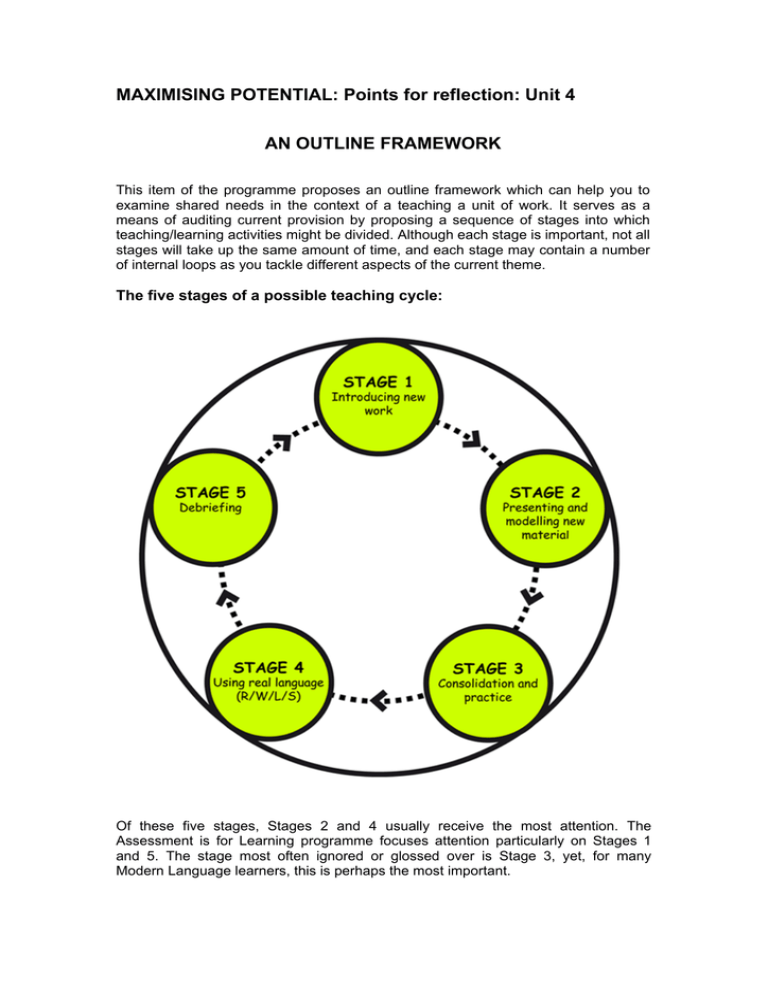
MAXIMISING POTENTIAL: Points for reflection: Unit 4 AN OUTLINE FRAMEWORK This item of the programme proposes an outline framework which can help you to examine shared needs in the context of a teaching a unit of work. It serves as a means of auditing current provision by proposing a sequence of stages into which teaching/learning activities might be divided. Although each stage is important, not all stages will take up the same amount of time, and each stage may contain a number of internal loops as you tackle different aspects of the current theme. The five stages of a possible teaching cycle: Of these five stages, Stages 2 and 4 usually receive the most attention. The Assessment is for Learning programme focuses attention particularly on Stages 1 and 5. The stage most often ignored or glossed over is Stage 3, yet, for many Modern Language learners, this is perhaps the most important. Stage 3 is the point at which learners need to become familiar with all aspects of the new language elements recently encountered; to experiment with new language structures; to see how these combine together and with previously learned material; and to transfer meaning, sound, gender, spelling, rules of syntax, etc. from working memory to long-term memory banks so that they can recall items accurately when required. This is a tall order. What happens if this stage is omitted or truncated? Then learners are required to move to Stage 4 (working with texts) insecure in their knowledge of recently taught language and without having had a chance to practice manipulating the new language elements for themselves or to install them in long term memory. This results in incomplete data storage, lack of confidence, increased likelihood of failure, feelings of reluctance and demotivation and, in some cases, avoidance strategies. If Stage 3 is well managed, with plenty of opportunities for games and single outcome game-like activities which allow pupils to manipulate language for themselves in non-threatening pair and group situations, and which allow for randomised repetition of important vocabulary and structures, then they will be ready to move on confidently to using texts for reading, writing, listening and speaking activities at Stage 4 with a much increased chance of success. The reason most often given for underplaying Stage 3 is that there isn’t time, there’s too much to get through. But schools that have taken the time to develop Stage 3 have found that improved confidence and motivation at Stage 4 have actually saved time and led to more satisfying achievement. Games and certain types of game-like software can offer ways of engaging pupils in those repetitive tasks which, though essential to effective learning, can seem boring and pointless if carried out solely by means of textbook-and-jotter or worksheet tasks.




